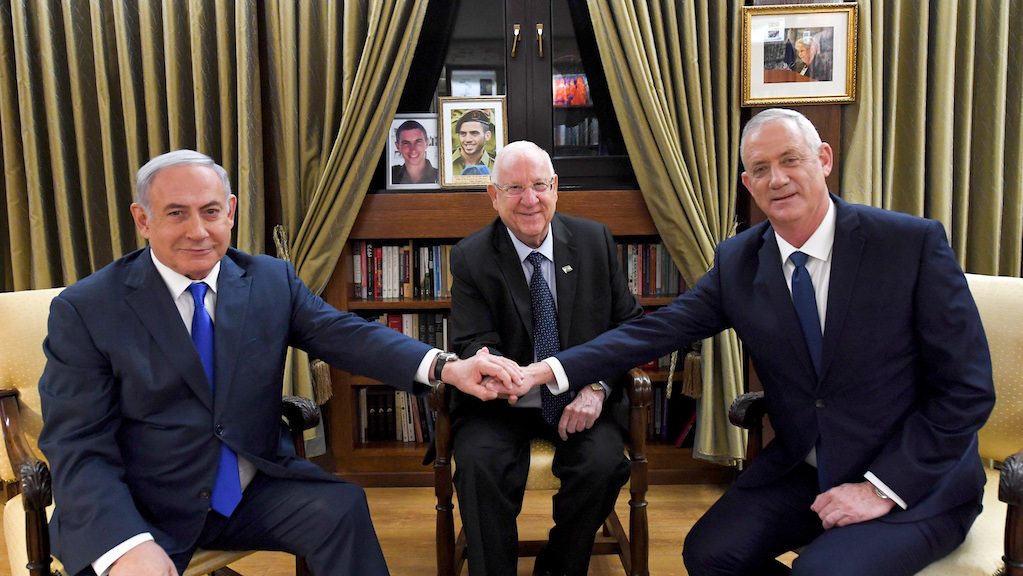Who Will Govern Israel?
The second Israeli parliamentary elections within six months yielded no clear winner. President Rivlin has mandated PM Netanyahu – who is facing possible indictment – to try to form a coalition. The potential kingmaker is Avigdor Lieberman. Israel is heading into unchartered political waters.
In the elections on 17 September, the Blue and White Party of Benny Gantz, Moshe ‘Bogie’ Ya’alon and Yair Lapid won 33 seats – a loss of 2 compared to April, but two seats more than the Likud Party of current Prime Minister Benjamin Netanyahu.
“PM Netanyahu – facing possible indictment”
The Likud Party of Netanyahu, the longest-serving Prime Minister in Israel’s history, gained only 32 seats, a loss of three seats compared to the April election.
The President has the power to appoint one of the elected 120 Members of Knesset (MKs) as the next potential prime minister of Israel. The designated premier must then attempt to form a coalition that has the confidence of a majority of Knesset members. If that cannot be achieved within the timeframe set down by law, new elections will be required.
“Israel is heading into unchartered political waters.”
The left-wing bloc of parties to which Blue and White belong includes the Democratic Union, which only won five seats, and the Labor Party, which formed a union with the Gesher party prior to the elections. The Gesher-Labor merger won only six seats a historic low for the party that ruled Israel for decades since the founding of the state. In total, the centre-left block won only 43 of the 120 seats in the new Knesset and is not even able to form a majority government with the help of the joint Arab list which won 13 seats.
On the other hand, the right-wing bloc led by Likud won a disappointing 55 seats, insufficient to form a majority government. This group comprises Likud: the Sephardic Orthodox party Shas with nine seats; the United Torah Judaism, an Ashkenazi ultra-orthodox party with eight seats, and Yamina, a national religious party with seven seats.
Yisrael Beiteinu became the biggest winner of the elections with nine mandates, a gain of four compared to April. The party of the Russian-speaking Avigdor Lieberman quit Netanyahu’s government in November 2018 because of a disagreement about a law that sought to impose mandatory military conscription for ultra- orthodox Yeshiva students. The difficult personal relationship between Netanyahu and Lieberman also played a role in the background.
Lieberman supports a national unity government of secular parties consisting of Likud, Blue and White and Yisrael Beiteinu but so far has refused to endorse either Gantz or Netanyahu.
On 24 September, President Reuven Rivlin formally gave Netanyahu four weeks to form the government, after meetings at the President’s Residence with Netanyahu and Blue and White leader Benny Gantz to try to agree on a unity government failed to bring about a breakthrough.
“Netanyahu has the best chance to form a government”, he said. The deadline will be 24 October. The political situation is complicated by the fact that on 2 October the Attorney General (Avichai Mandelblit) is due to decide whether to indict Netanyahu on corruption charges.
So far Blue and White leader Benny Ganz and other prominent politicians of the new party have ruled out cooperation with Likud as long as Netanyahu is the leader of the party and subject to possible indictment. Prominent Likud members have indicated that they have no intention to drop Netanyahu as party leader and with that, the formation of a government of national unity looks an extremely complicated matter. Should Netanyahu be indicted, prominent Likud members will probably be more open to the idea of appointing a new party leader.
It is unlikely either party will be willing to form a government with the united Arab list. For tactical reasons, ten members of the united Arab list took the unusual step to recommend a Zionist party leader for the task of building a workable government. The third-largest party in Israel decided on 23 September to recommend Benny Ganz in order to thwart the
possibility that Netanyahu would receive a majority of recommendations. Likud shares Blue and White’s view about forming a government with the Arab parties and will under no circumstances form a coalition with Arab parties that are considered hostile to the Jewish state.
Yisrael Beiteinu is, therefore, expected to assume the role of kingmaker in the coalition forming process once again.
“The forming of a workable coalition could take at least until the end of December 2019.”
Blue and White does not have any essentially different positions on national security than Likud, and this is still the most important issue in Israeli politics. Ganz is in favour of continuing the Israeli policy towards Iran and also doesn’t oppose the introduction of Israeli sovereignty over the Jordan Valley. Blue and White are, however, against Israeli sovereignty over the Jewish villages and towns in Judea and Samaria, the so-called West Bank and still supports the so- called Two-State-Solution.
The forming of a workable coalition could take at least until the end of December. This would mean that Israel will only see a new government at the beginning of 2020. If neither Netanyahu or Gantz is able to form a workable coalition, Israel will have to go back to the polls – yet again.






